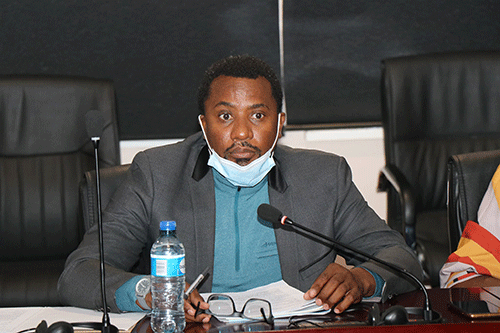The Parliamentary Standing Committee on Economics and Public Administration visited the stalling N$190 million Peugeot assembly plant in Walvis Bay on Friday.
The visit by the committee, which is chaired by Natangue Ithete, was to familiarise themselves on the investment profile of the Namibia Industrial Development Agency (NIDA) in terms of its Public-Private Partnership (PPP) and its joint venture shareholding.
NIDA holds a 49% stake in the Peugeot plant on behalf of government, while French automaker Groupe PSA has a majority 51% share.
However, the vehicles assembled there thus far cannot be exported to the rest of the region due to Southern African Customs Union (SACU) policies on rules of origin, which stipulate that 40% of the parts must be sourced locally.
Government is also adamant that an additional SACU 18% tax, which make the Peugeots uncompetitive, can be reduced to 1% through a system of rebates under the Automotive Production and Development Programme (APDP). Government is now working determinedly to solve the export issues afflicting the plant and has vowed that the factory will not close down, emphasising that SACU rules for “locally-sourced” means the components can be sourced within southern Africa.
“The Standing Committee on Economics and Public Administration will intensify and prioritise its oversight functions with a view to fulfilling its mandate of parliamentary supervision of the Ministry of Finance, National Planning Commission, Ministry of Industrialisation, Trade and SME Development, Works and Transport and all the State-Owned Enterprises reporting to these office and ministries as a way of contributing its quota to the national industrialisation agenda,” Ithete stated during a training workshop for committee members at the coast last week. The committee also visited African Deli, a local food manufacturer at Walvis Bay founded in 2013.
Vision 2030 progress
Furthermore, Ithete noted that the implementation of Vision 2030 does not look promising as it is faced with numerous challenges in Namibia’s quest to become an industrialised nation.
During the workshop, the committee was presented with data on Vision 2030 implementation outcomes, well-informed critique of the processes and procedures, current achievements, as well as projected pathways to complete the strategy’s course.
“We were informed that the implementation challenges were partly the result of a slowdown and the stagnated economy since 2015. The evidence presented to us is clear that Namibia is not doing well in terms of manufacturing,” he pointed out.
Ithete said the committee identified an array of factors hampering industrialisation and trade enhancement in Namibia as outdated laws and regulations, a lack of forward and backward linkages between economic sectors, as well as the inadequate coordinated planning and implementation of joint projects.
He added fragmented business support programmes, inadequate tax and non-tax-based investment support, and the country’s declining economic competitive ranking as factors hampering industrialisation and trade enhancement.
Ithete also acknowledged that Namibia’s natural resources base is highly relevant for the industrial development agenda, but that it remains clear the country has to chart an inclusive growth agenda.
“For inclusiveness to be operationalised, the education and development systems of the country need a substantial overhaul, with particular emphasis on vocational and technical training,” he posited.
Informal sectors have made many economies flourish, and he thus encouraged government to improve and capacitate small and medium enterprises development as this will invariably contribute to minimising the rural-urban dichotomy.
As a key element of Vision 2030 is to transform Namibia into an industrial nation, Ithete said the industrialisation agenda is more critical now than ever as the world transitions into new technologies.


